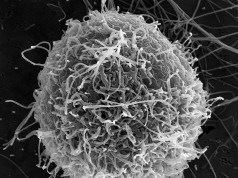By, Robert A. Wascher, MD, FACS
Updated: 04/12/2009
The information in this column is intended for informational purposes only, and does not constitute medical advice or recommendations by the author. Please consult with your physician before making any lifestyle or medication changes, or if you have any other concerns regarding your health.
CAN CHRONIC STRESS HARM YOUR HEART?
As we all know, we are currently living in troubling times. Anxiety and depression are widespread as recently unemployed people struggle to find jobs, while currently employed people are in constant fear of losing their jobs. Retirement portfolios have been devastated by the dual implosion of home values and the stock market, leaving many older Americans with inadequate financial reserves to meet their needs during what should have been their “golden years.” The pervasive impact of the still ongoing contraction of the global economy has rippled throughout all levels of the socioeconomic ladder, leaving the majority of our population feeling anxious and stressed, and uncertain about our futures.
Recently, I was asked by the editors of another health education website to comment on a reader’s question regarding the mechanisms whereby prolonged psychological and emotional stress are able to cause heart disease. It is well known that people who are under a great deal of stress are more prone to engage in behaviors that are associated with the development of cardiovascular disease. Poor dietary habits, avoidance of exercise, excessive alcohol intake, and smoking are all behaviors that chronically stressed people often engage in, and which have all been linked to an increased risk of heart disease. In addition to these indirect links between chronic stress and heart disease, there is also some experimental animal data suggesting that sustained elevations of the “stress hormones” cortisol, epinephrine (also known as adrenaline), and norepinephrine (noradrenaline) in the blood may directly impair heart function. However, there has been very little experimental data, to date, confirming that chronically elevated levels of “stress hormones” can directly lead to damage and dysfunction of the heart in humans.
Stress cardiomyopathy (SCM) has been described as a temporary but severe decline in heart function that is associated with periods of intense psychological, emotional, or physical stress, and occurs in patients with otherwise normal heart anatomy and function. In most cases, patients with SCM go on to recover normal heart function, although permanent damage to the heart’s muscle cells has been documented in some cases of SCM. Although the precise cause, or causes, of SCM are not well understood, previous studies of patients with severe SCM have shown elevated levels of “stress hormones” in their blood. Another potential clue regarding the pathophysiology of SCM is that patients with tumors that secrete epinephrine and norepinephrine (collectively referred to as catecholamines) can sometimes present with profound heart dysfunction as well. However, there has been no direct experimental proof, thus far, that SCM is directly caused by increased levels of catecholamine hormones in the blood. Now, a newly published clinical research study, just published in the Journal of the American College of Cardiology, provides potential evidence of such a link.
A fascinating retrospective study, performed at the Johns Hopkins University, evaluated 143 patients who were diagnosed with acute SCM between 2001 and 2008. Nine of these patients were actually documented to have acutely developed SCM following the administration of the catecholamine hormones epinephrine or dopamine. Three patients developed SCM after receiving dopamine while undergoing routine cardiac stress testing as outpatients. A fourth patient, a physician, developed SCM after intravenously injecting multiple vials of epinephrine during a suicide attempt. Four patients inadvertently received small doses of epinephrine injections directly into a vein (instead of into the tissues being operated upon) during surgical procedures, while the ninth patient inappropriately received an intravenous injection of epinephrine as treatment for a fainting spell. All of these patients developed chest pain after receiving catecholamine injections, and 6 of the 9 patients developed acute heart failure with the onset of SCM.
None of these 9 patients (average age was 44 years) had any prior clinical evidence of heart disease before receiving these catecholamine injections. In each of these 9 cases of SCM, ultrasound images of the left ventricle, the primary pumping chamber of the heart, revealed extensive abnormalities in heart muscle contraction and ventricular pumping function. EKG abnormalities suggestive of acute and moderately severe cardiac stress were also found in these 9 patients with acute catecholamine-induced SCM, while blood tests for Troponin-I, a protein that is released into the blood from damaged heart muscle cells, revealed elevated levels of this heart injury marker in all 9 patients as well. Seven of these 9 patients underwent coronary artery angiograms, and none of these 7 patients had any evidence of significant coronary artery disease by angiography. Fortunately, nearly complete recovery of left ventricular pumping function was observed in these 9 patients, on average, 7 days after the onset of SCM.
While 2 of these 9 patients clearly received an overdose of intravenous epinephrine, the remaining 7 patients received standard doses of catecholamines used for routine clinical diagnostic and therapeutic purposes. Notably, although this was a very small sample size, 7 of the 9 (78 percent) patients evaluated in this study were women. Although this intriguing study did not definitively identify a specific mechanism whereby increased blood levels of catecholamine “stress” hormones cause SCM, it does nonetheless strongly suggest that certain susceptible patients may be at increased risk of developing SCM-induced heart dysfunction due to excessive blood levels of catecholamines. In 8 of these 9 patients, acute SCM was precipitated by a single injection of either epinephrine or dopamine. Although we do not yet know why these particular patients were especially susceptible to catecholamine-induced SCM, these 9 cases raise the concern that long-term elevations of catecholamine “stress” hormones, in chronically stressed people with otherwise healthy hearts, may be capable of inducing acute or sub-acute cardiac dysfunction. Moreover, experimental animal data has shown that elevated levels of catecholamines can be directly toxic to the heart’s muscle cells and, thus, chronically elevated catecholamine levels may play a role in the eventual development of congestive heart failure in susceptible individuals. Since many of us are feeling chronically stressed-out today, and the vast majority of us will not develop SCM or congestive heart failure as a result of our high levels of stress, there are probably individual patient factors that increase the risk of stress-related cardiac dysfunction. These may include gender (7 of the 9 patients in this retrospective study were women), as well as specific, individual genetic factors. Until these potential “susceptibility factors” are better characterized, however, we are unable to determine which, if any, people might be at increased risk of stress-induced SCM, or other stress-related cardiac abnormalities, at the present time. However, this clinical study suggests that there may, indeed, be a direct potential link between high levels of stress and cardiac dysfunction.
If you feel overwhelmed by stress, anxiety or depression, please seek help through your primary physician. At the same time, although it can be very difficult during times when you already feel overwhelmed, you should abstain from heart un-healthy behaviors, and also try to work some exercise into your schedule. As I have reported upon previously in this column, multiple studies have also revealed a link between getting less than 7 hours of sleep per night with an increased mortality rate. Hopefully, these hard times will pass soon, and our collective stress levels will soon begin to fall.
Disclaimer: As always, my advice to readers is to seek the advice of your physician before making any significant changes in medications, diet, or level of physical activity
Dr. Wascher is an oncologic surgeon, a professor of surgery, a widely published author, and a Surgical Oncologist at the Kaiser Permanente healthcare system in Orange County, California
Send your feedback to Dr. Wascher at: rwascher@doctorwascher.net
Dr. Wascher’s Biography
Links to Other Health & Wellness Sites
Copyright 2009
Robert A. Wascher, MD, FACS
All rights reserved
Dr. Wascher’s Archives:
4-5-2009: Does PSA Testing for Prostate Cancer Save Lives?
3-15-2009: Depression, Stress, Anger & Heart Disease
3-8-2009: Coronary Artery Disease: CABG vs. Stents?; Swimming Lessons & Drowning Risk in Children
3-1-2009: Aspirin & Colorectal Cancer Prevention; Fish Oil & Respiratory Infections in Children
2-22-2009: Health Differences Between Americans & Europeans; Lycopene & Prostate Cancer
2-15-2009: Statin Drugs & Death Rates; Physical Activity, Breast Cancer & Sex Hormones
2-8-2009: Hormone Replacement Therapy (HRT) & Breast Cancer; Stool DNA Testing & Cancer of the Colon & Rectum
1-25-2009: Prostate Cancer, Fatigue & Exercise; Does your Surgeon “Warm-up” Before Surgery?
1-18-2009: Cancer and Vitamins; Teenagers, MySpace and Risky Behaviors
Exercise Reverses Some Effects of Fatty Meals; Vitamin C and Blood Pressure
12-28-2008: Stress & Your Risk of Heart Attack; Vitamin D & the Prevention of Colon & Rectal Polyps
12-21-2008: Breast Cancer Incidence & Hormone Replacement Therapy; Circumcision & the Risk of HPV & HIV Infection
12-14-2008: Vitamin E, Vitamin C and Selenium Do Not Prevent Cancer; Postscript: A Possible Cure for Down’s Syndrome
12-7-2008: Generic vs. Brand-Name Drugs, Stress & Breast Cancer Survival
11-30-2008: A Possible Cure for Down’s Syndrome?; Smoking & Cognitive Decline; Calcium & Vitamin D & Breast Cancer Risk
11-23-2008: Breast Cancer & Fish Oil; Lymphedema after Breast Cancer Treatment; Vasectomy & Prostate Cancer Risk
11-9-2008: Statins Cut Heart Attack Risk Even with Normal Cholesterol Levels; Statins & PSA Level
11-2-2008: Radiation Treatment of Prostate Cancer & Second Cancers; Sexual Content on TV & Teen Pregnancy Risk
10-26-2008: Smoking & Quality of Life
10-19-2008: Agent Orange & Prostate Cancer
10-12-2008: Pomegranate Juice & Prostate Cancer
10-5-2008: Central Obesity & Dementia; Diet, Vitamin D, Calcium, & Colon Cancer
9-28-2008: Publication & Citation Bias in Favor of Industry-Funded Research?
9-21-2008: Does Tylenol® (Acetaminophen) Cause Asthma?
9-14-208: Arthroscopic Knee Surgery- No Better than Placebo?; A Healthy Lifestyle Prevents Stroke
8-23-2008: Alcohol Abuse Before & After Military Deployment; Running & Age; Running & Your Testicles
3-16-2008: Benefits of a Full Drug Coverage Plan for Medicare Patients?; Parent-Teen Conversations about Sex; Soy (Genistein) & Prostate Cancer
2-23-2008: Universal Healthcare Insurance Study; Glucosamine & Arthritis
2-3-2008: Vitamin D & Cardiovascular Health; Vitamin D & Breast Cancer; Green Tea & Colorectal Cancer
1-12-2008: Statins, Diabetes & Stroke and Obesity; GERD & Esophageal Cancer
12-31-2007: Minority Women, Hormone Replacement Therapy & Breast Cancer; Does Health Insurance Improve Health?





